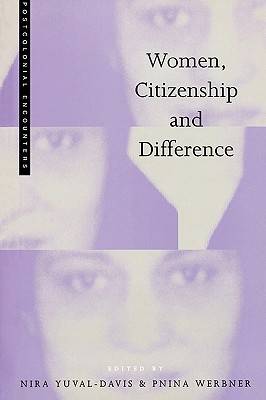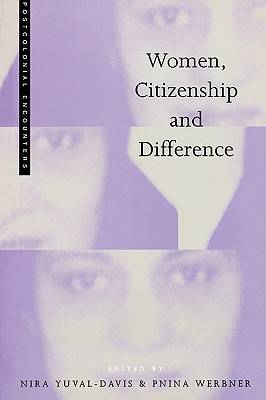
Bedankt voor het vertrouwen het afgelopen jaar! Om jou te bedanken bieden we GRATIS verzending (in België) aan op alles gedurende de hele maand januari.
- Afhalen na 1 uur in een winkel met voorraad
- In januari gratis thuislevering in België
- Ruim aanbod met 7 miljoen producten
Bedankt voor het vertrouwen het afgelopen jaar! Om jou te bedanken bieden we GRATIS verzending (in België) aan op alles gedurende de hele maand januari.
- Afhalen na 1 uur in een winkel met voorraad
- In januari gratis thuislevering in België
- Ruim aanbod met 7 miljoen producten
Zoeken
Omschrijving
This is an important contribution toward an understanding of citizenship as mediated by other collective, historically determined identities: of gender, ethnicity, class and national status. It brings together prominent international scholars from moral philosophy, law, political science and sociology to offer a major reconceptualization of the idea of citizenship. Throughout, it is concerned with the dismantling of welfare states, the attack on civil society and the rise in state terror and religious and cultural fundamentalisms. Contributors demonstrate how the growing ambivalence of state sovereignty in the face of multinational capitalism and the absence of political accountability structures are complicit in the definitions of gendered citizenship. Against these, women's communal mobilization and political activism are considered in terms of their power effects and political potentialities; the book as a whole shows the need to negotiate and transcend difference and to find means for creating alliances across differences.
Specificaties
Betrokkenen
- Uitgeverij:
Inhoud
- Aantal bladzijden:
- 288
- Taal:
- Engels
- Reeks:
Eigenschappen
- Productcode (EAN):
- 9781856496469
- Verschijningsdatum:
- 1/06/1999
- Uitvoering:
- Paperback
- Formaat:
- Trade paperback (VS)
- Afmetingen:
- 135 mm x 215 mm
- Gewicht:
- 317 g

Alleen bij Standaard Boekhandel
+ 159 punten op je klantenkaart van Standaard Boekhandel
Beoordelingen
We publiceren alleen reviews die voldoen aan de voorwaarden voor reviews. Bekijk onze voorwaarden voor reviews.








